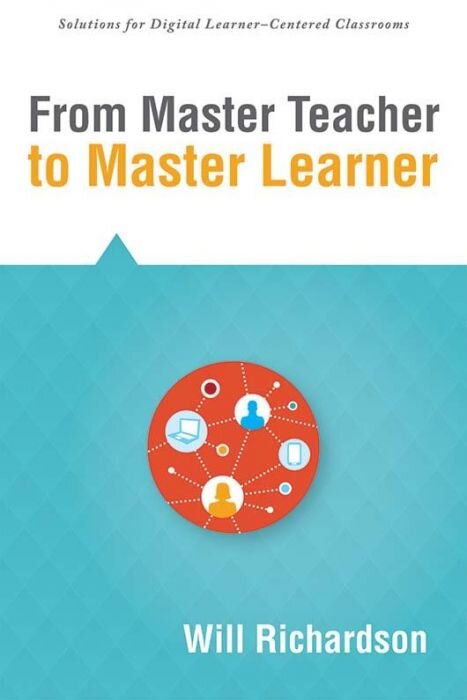Free Content. Subscription Services. Customized Workshops.
To view a distillation click on the book cover or Read More link below the excerpt. Not sure how to use the distillations to improve your practice, learn more about them on our Distillations Explained page.
To find another book, return to the Book Search page.
Rookie Smarts
Wondering what the value of hiring young teachers and administrators might be? Looking to give a shot to someone switching careers? In Rookie Smarts, Liz Wisman will take you through all of the variables of giving those with a fresh perspective the chance to do new work. This book will change the way you hire, promote, and evaluate… three critical components to all leadership positions.
Think Like a Monk
In Think Like a Monk, Jay Shetty calls his readers to a life of service noting that service fulfills us on many levels. We are born to care for others, so service does us good. By design, teaching is a service profession. How long has it been since you have examined your practice as an educator through the lens of love and as an act of service?
Distracted
In his book Distracted, James Lang explains that “the human brain is an eminently distractible organ. We thus are fighting a losing battle if we try to solve the problems of attention by eliminating distraction. Banning devices from the room still leaves pencils for doodling, windows to stare through, coughing and sniffing humans to irritate us, and the endless chaotic swirling of our thoughts. Instead, we need to think about how the learning environments that we build for students can be safe and supportive spaces.
The Power of Moments
In The Power of Moments, the Heath brothers piece together research, personal anecdotes, history, and psychology to clarify something that affects us all… moments in our lives. They clarify the conditions that increase the chances they are memorable, like creating “peak moments”(eg. college acceptance communication), “leveling up” your pride (e.g. Boy Scout levels), and connections (e.g. team-building exercises) all enhance the moments of our lives
Screenwise
Screenwise, by Devorah Heitner, was written with parents in mind, but there are many helpful parallels to education. She also calls off the wolves on some parental concerns (e.g., most teenagers aren't looking to meet new people online and almost all digital interaction is polite and caring) and walks the reader through what the reality of the digital landscape is for kids. The overarching message is to engage with children in their digital world and seek to mentor more and monitor less.
How Children Succeed
What if the educational emphasis on cognition and ability was all a mistake? What if we focused on developing persistence, self-control, and curiosity instead of cognitive skills? In How Children Succeed, Paul Tough argues that teaching soft skills might be more important than the traditional educational curriculum.
Drive
If you are interested in motivation for yourself, your students, or those you lead, you will find plenty of ideas and research in Drive. Daniel Pink sandwiches mastery, autonomy, and purpose in between his call for new methods of motivating and toolkits to do so. A masterful combination of history, research, and theory will be a joy for anyone interested in motivating themselves or others.
Permission to Feel
In Permission to Feel, we learn that some of the most important aspects of learning - attention, focus, and memory - are all controlled by our emotions, not by cognition. Marc Brackett helps us understand what emotions are, how to label them, and the information emotions communicate, potentially transforming how administrators and teachers lead and how students learn.
Linchpin
Seth Godin’s Linchpin proclaims that the industrial model of schooling and living as cogs in a machine is outdated, and in turn, explains how individuals can transform themselves into indispensable linchpins that create art, inspire human connections, and solve interesting problems. Godin chips away at traditional educational models that rely upon fear, compliance, and rote memorization; however, he also provides innovative alternatives centered around the belief in students, growth, leadership, and taking risks.
From Master Teacher to Master Learner
Will Richardson makes it clear from the get-go in From Master Teacher to Master Learner that the model teacher needs to now be a learner first and foremost. He reinforces the idea that our students no longer need teachers who have encyclopedic knowledge, but rather those who can model learning and guide students through what learning should look like in the digital age.
Timeless Learning
Socol, Moran, and Ratliff’s book Timeless Learning; How Imagination, Observation and Zero-Based Thinking Change Schools takes a look at outdated American public schools and how they are currently failing students. School leaders and educators wishing to create change will appreciate this book for inspiration and for ideas on how and where to start.
Mindset
In what is perhaps the most buzzworthy and conversation-inducing book within education this century, Mindset vividly demonstrates the difference between a “growth” and a “fixed” mindset. The former is a blueprint for a life of learning and achievement, and the latter, a life of low-effort, defensive responses creating a feeling of constantly not measuring up.
The Talent Code
In The Talent Code, Daniel Coyle proposes all hotbeds of talent (e.g., Russian female tennis players from 2005-2007, Dominican players in the Major Leagues, the home that produced the three Brontë sister authors) have commonalities: Deep practice, Ignition, and Master Coaching. In some ways the sociological equivalent to Daniel Pink's Drive, The Talent Code offers solid examples of how myelin is the key to developing talent.














